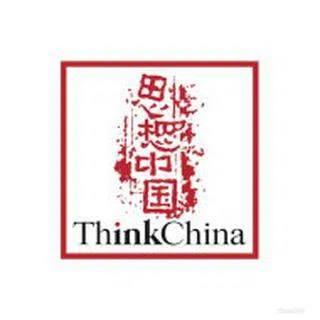Bipolar world: Two main changes from the war in Ukraine
As the world marks one year of the war in Ukraine this month, commentator Jin Jian Guo looks at how the global situation has changed in that time, within the European continent and in the world at large. It is clear that in various aspects, Russia is not in a promising position, and China, as a pole that challenges the American order, will face significant obstacles.
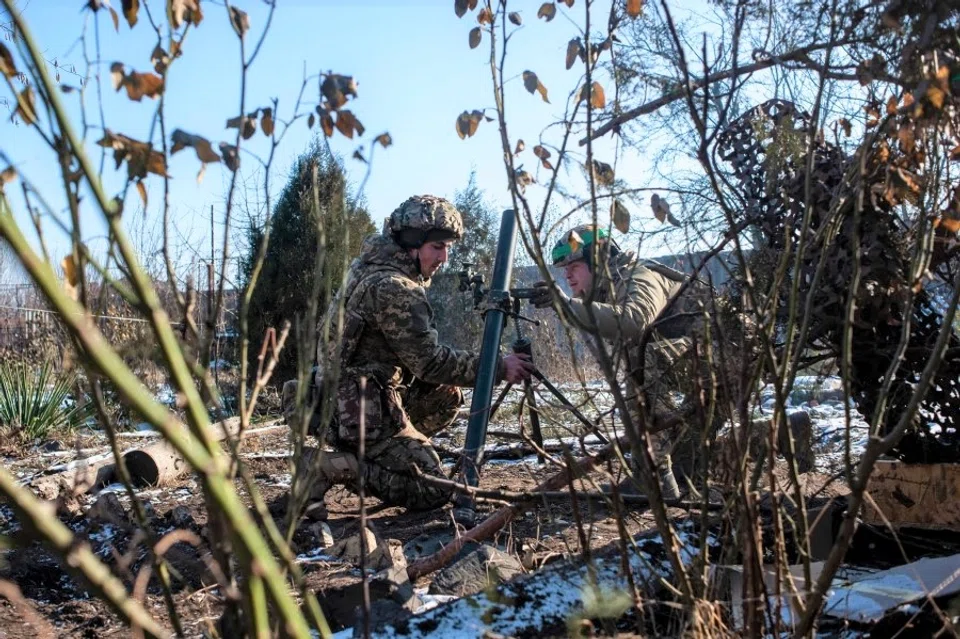
24 February marks one year since Russian President Vladimir Putin launched the war in Ukraine. This war that China sees as being incited and driven by the US has changed the global situation. This is where 21st century world history begins.
First, the war in Ukraine has totally changed Europe. The biggest change is in the area of security. There are two aspects to this: one, transatlantic alliances under NATO; two, Germany, which has experienced the biggest shock within the European Union (EU) and has undergone the greatest change.
Germany's rearmament
Since the end of the Cold War, Germany has reduced its troop numbers from 500,000 at the time of reunification to the current 183,000. The soldiers lack heavy arms and ammunition, as well as basic equipment like protective vests, helmets and backpacks. After the war in Ukraine began, German Chancellor Olaf Scholz said it was a "turning point" for the world. The German government rearmed the country, with two landmark changes.
First, approving a special 100 billion euro defence fund last year; second, committing to spending at least 2% of its GDP on defence.
Before the Ukraine war, this change for Germany would have been unimaginable. The path of peace is deeply ingrained in the German people, and it has been the start of Germany becoming economically and militarily strong. In many places, soldiering is something good, and fighting for the country is the duty of every citizen. But this is not true in Germany, where military strength generally triggers uneasy memories of Nazi history.
Being over-reliant on Russia for energy taught Germany that external economic relations must include political considerations, and not just economic interests.
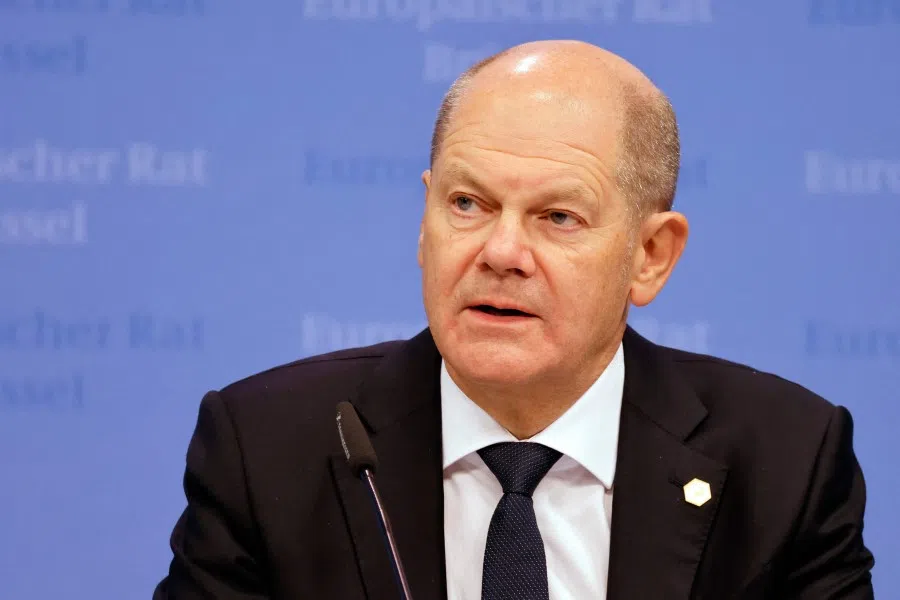
In 1955, when the Bundeswehr (German armed forces) was formed, the Soviet leader painted German troops as "Fascist revanchists" and "the return of Hitler". It was Putin's war on Ukraine that led Germany to rearm. Scholz said Putin wants to create a Russian empire, and Germans have to ask: "What capabilities do we need to meet this threat today and in the future?" This change also signalled the failure of Germany's decades-long "change through trade" policy. Being over-reliant on Russia for energy taught Germany that external economic relations must include political considerations, and not just economic interests. But this change might turn Germany into the third or fourth strongest military power in the world, which would have an effect on Europe's political situation - France, being the most sensitive, would respond.
US-China bipolarity
Second, a bipolar world led by China and the US has taken shape. The war in Ukraine marks the end of the post-Cold War era, and the end of a US-led unipolar world. It also proves that there is no multipolar world of China, the US, Europe and Russia. The "strategic autonomy" that the EU advocates seems feeble in the face of the Ukraine war, and cannot be compared to the role the US plays for Ukraine. France and Germany - the twin engines of Europe - are wavering and unsure in the face of the Ukraine war. Around the time the war began, French President Emmanuel Macron's attitude of appeasement towards Putin was obvious, while Germany was hesitant in supporting Ukraine.
The UK seems to be leading Europe, proving that the EU's strategic autonomy remains lip service.
In Europe, Poland is the most active supporter of Ukraine. When it comes to assisting Ukraine, it has been almost all Poland pushing France and Germany to take action. Europe is calling on Germany's leadership, and Scholz is going along with the wheels of history. Outside of the European continent, the UK is Ukraine's strongest supporter. Former Prime Minister Boris Johnson was the first Western leader to brave the shellfire and visit Kyiv, while the UK under current PM Rishi Sunak was the first Western country to provide tanks to Ukraine. The UK seems to be leading Europe, proving that the EU's strategic autonomy remains lip service.
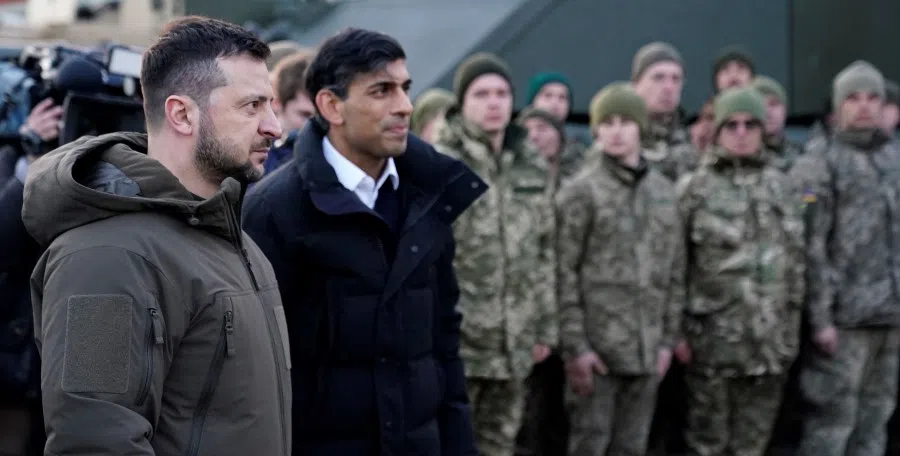
The Ukraine war has proven that the military might of the world's second military power is an illusion. Russia's economy and technology are too weak to support its military power. Apart from having nuclear weapons, Russian military power is just an empty shell. The war has also proven that Putin has seriously overestimated Europe's dependence on Russian energy - Europe has enough reserves of natural gas. As of January, Germany's gas storage facilities are filled to 91% capacity, higher than last year's 54%, while Russia is in a bad position due to economic sanctions.
... because Russia has little room to boost oil and gas exports to India, China and Turkey, its economy will be in tatters.
As stated in a Wilson Center report, before the war, oil and gas made up about 45% of Russia's total budget revenues and about 60% of export revenues. Russia's physical oil exports in 2022 could also be 7.5% higher than in 2021. However, the price of Brent crude had almost halved by the end of December from its March peak of US$140. At the same time, India, China and Turkey are also buying Russia's Urals crude oil at a discount of more than US$30 per barrel to Brent. Even if the war ends now, the Russian economy will struggle to recover as the West has abandoned the country. And because Russia has little room to boost oil and gas exports to India, China and Turkey, its economy will be in tatters.
... Russia needs China far more than the other way round.
A weakened Russia is also increasingly dependent on China, which only acknowledges mutual political trust with the country but maintains the principle of "non-alliance, non-confrontation and non-targeting of any third party". With China's rising strength and Russia's decreasing power in China-Russia relations, Russia needs China far more than the other way round.
Knocking out the other pole
China has already become a pole that challenges the American order on the basis of its massive economy and its position as the world's largest manufacturing power, granting it great influence over the world. China is the largest trading partner to more than 120 countries in the world, and wields significant power over imports and exports. The Belt and Road Initiative is also China's model for globalisation.
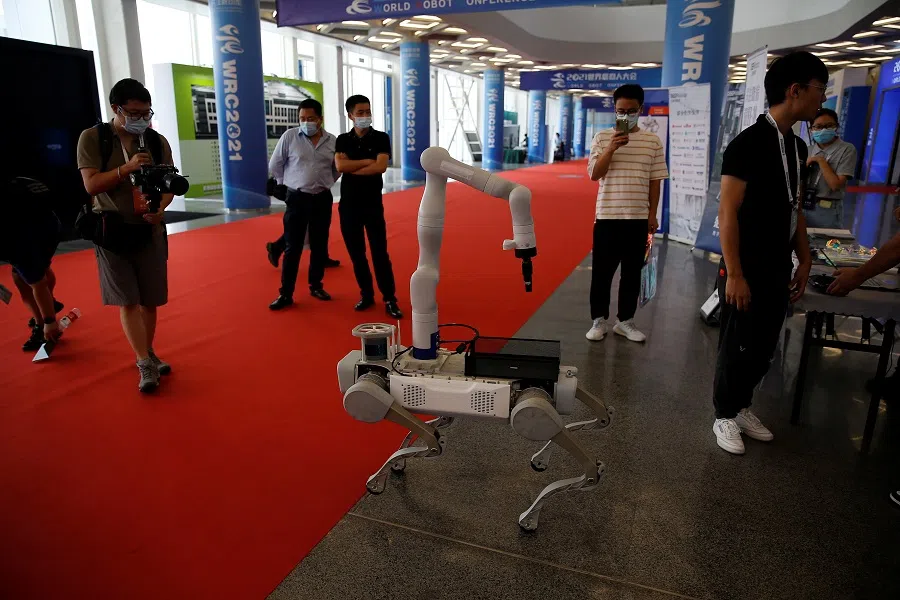
China's emergence as a separate pole of the world is not limited to its economy; it also uses technology to shape the world, as seen in a comparison of two book titles. In 2012, Charles Arthur's Digital Wars: Apple, Google, Microsoft and the Battle for the Internet was published. In 2021, Winston Ma's The Digital War: How China's Tech Power Shapes the Future of AI, Blockchain and Cyberspace was published. Clearly, the former describes American internet dominance while the latter expounds the impact of Chinese tech enterprises in the future.
While the book titles are similar, the subtext is different, with the latter telling the story of China's technological rise. In 2018, Kai-Fu Lee's AI Superpowers: China, Silicon Valley, and the New World Order was published, mapping out the prospect of Chinese AI dominating the world. The book title illustrates Chinese technology shaping a new world order.
China's position as a new pole is a derivative of the US's unipolar world, and the result of China's reform and opening up and more importantly the acceptance by the US and integration into the world economy. Deng Xiaoping's comment that "all the countries that foster good relations with the US become rich" has been proven by China. Last year, China's GDP totalled nearly US$20 trillion, ranking second in the world and amounting to about 80% of the US's GDP (US$25 trillion). In 1978, China's GDP was merely US$149.5 billion, ranking eleventh in the world and only about 8% of the US's economy. Forty-four years later, China's GDP has increased 134 times!
... when the US decides to turn hostile and compete with China on all fronts, it necessarily entails technological decoupling with China.

History has proven that the Chinese people's hard work alone is not enough to make the country rich - the people had slogged away before reform and opening up but living standards remained stagnant for a long time. At a time when daily life was inseparable from various ration coupons, how could one talk about influencing the world? Which one of the "four new inventions" - high-speed rail, mobile payment, e-commerce, and bike-sharing - that Chinese media have intentionally sensationalised is truly created by China?
The full-on competition between China and the US is the US's attempt at chopping off the world's other pole. China's emergence as a new pole was closely tied to US support; naturally, when the US decides to turn hostile and compete with China on all fronts, it necessarily entails technological decoupling with China. The chip war gives insight into the US's attempt to suppress China's technological prowess, while Huawei's predicament and the declining revenue and net profit of Chinese semiconductor giants Maxscend Microelectronics Co. and Will Semiconductor Co. last year is closely related to the US chip blockade.
China and the US dominate the same world, but they each dominate the world they pursue in different areas and in different countries and regions. The world is hoping for China's world and the US's world to coexist peacefully, and converge into a dream world.
This article was first published in Lianhe Zaobao as "俄乌战争带给世界格局两大变化".
Related: What a weakened Russia would mean for China | Russia-Ukraine war: China needs to be wiser and more flexible in its foreign policy | How closely aligned are China and Russia, really? | Xi Jinping's China dream keeps the world awake at night | Will China and Russia join hands to push for an alternative world order?
